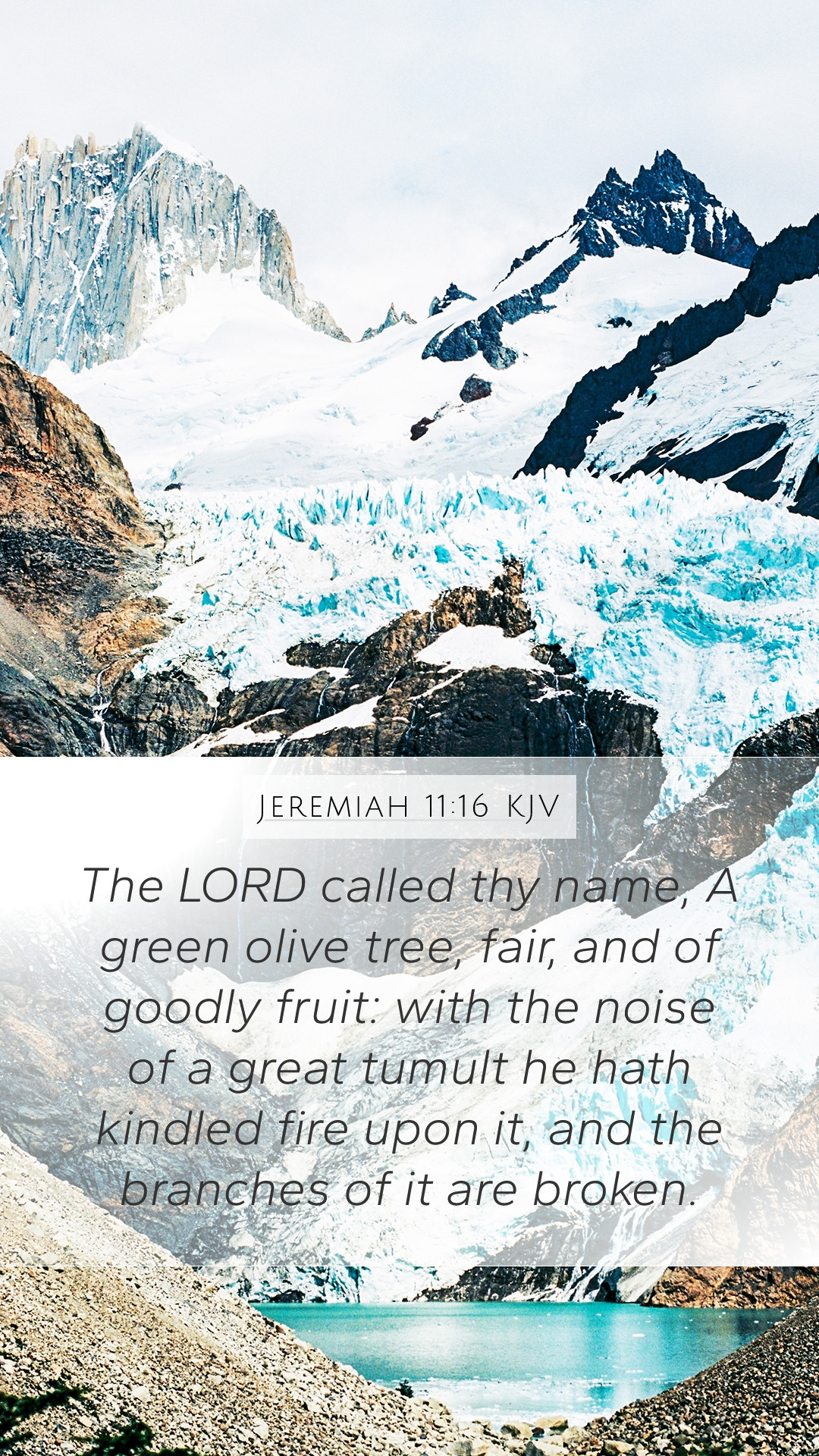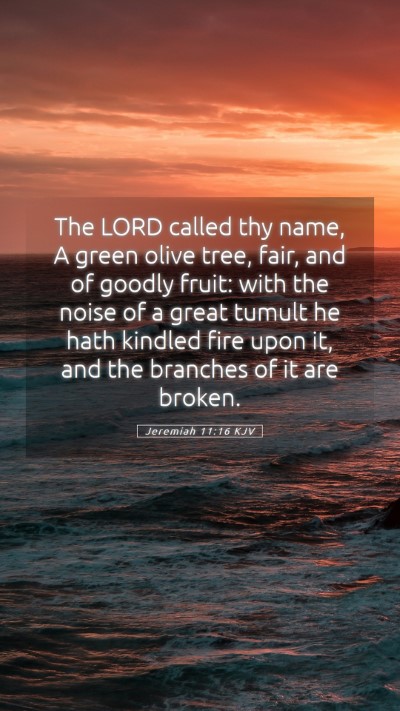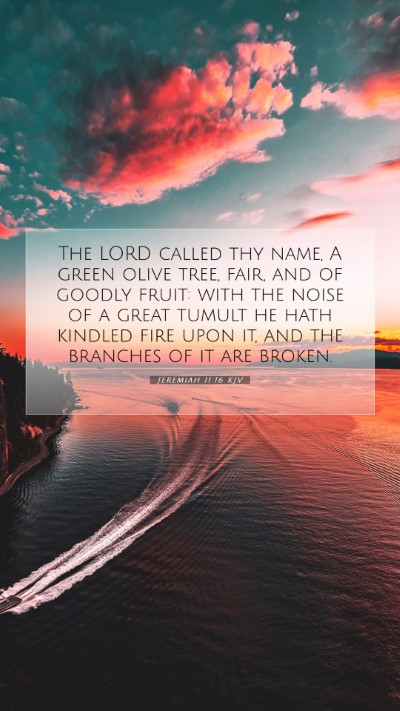Jeremiah 11:16 - Bible Verse Commentary and Meanings
Jeremiah 11:16 (KJV): "The Lord called thy name, A green olive tree, fair, and of goodly fruit: with the noise of a great tumult he hath kindled fire upon it, and the branches of it are broken."
This verse, which comes from the Book of Jeremiah, presents a profound image crafted by the Lord, drawing on the characteristics of a green olive tree to symbolize Israel's initial beauty and prosperity. However, amidst this promise, it forewarns of impending judgment due to Israel's disobedience.
Meaning and Interpretation
The divine metaphor in this verse suggests several layers of meaning:
- The Olive Tree Symbolism: The olive tree represents peace, abundance, and God's favor. Green signifies life and sustenance, portraying Israel’s former glory.
- Goodly Fruit: This indicates spiritual fruitfulness, which was characteristic of Israel’s early relationship with God. The implication is that they were expected to produce righteousness and obedience.
- The Tumult and Fire: The "great tumult" signals the impending judgment and chaos that will come due to their rebellion. The image of fire reinforces the destruction that their sins would bring upon them.
Commentary Insights
Here are the interpretations from notable commentators:
- Matthew Henry: He emphasizes the contrast between the initial vitality of the olive tree and the judgment it faces. His commentary explains that despite God’s provision and nurturing (as seen in the imagery of the olive tree), Israel still turned away from Him, leading to divine retribution.
- Albert Barnes: Barnes highlights the notion of God's blessings turned into a curse due to disobedience. He notes that the "goodly fruit" represents the expected righteousness, which has been replaced with sin, resulting in divine wrath.
- Adam Clarke: Clarke focuses on the significance of the "fire" that indicates both purification and destruction. He points out that although the olive tree was once thriving, it now faces turmoil because of the people's unfaithfulness to God’s covenant.
Application to Modern Life
Understanding this verse has vital applications for readers today:
- Reflect on Spiritual Health: Just as the olive tree signifies prosperity, believers are called to evaluate their spiritual fruitfulness and adherence to God's principles.
- Recognize Consequences: The tumult and fire symbolize that disobedience leads to consequences. It serves as a call to remain steadfast in one's faith amidst trials.
- Embrace Divine Grace: God's warning presents an opportunity for repentance. Embracing His grace leads to restoration and renewal, just as the olive tree signifies hope.
Related Scripture References
This verse resonates with other biblical themes of judgment and restoration:
- Hosea 14:6: "His branches shall spread, and his beauty shall be as the olive tree." - This echoes the image of Israel's restoration.
- Psalms 52:8: "But I am like a green olive tree in the house of God." - This portrays ongoing confidence in God's protection.
- Romans 11:17-24: Discusses how believers are grafted into God's promises, allowing the olive tree to symbolize inclusion and faith.
Conclusion
Jeremiah 11:16 serves as a poignant reminder of God's expectations versus human actions. In exploring the meaning of this verse, readers gain deeper insights into the nature of God's relationship with His people and the significance of faithfulness amidst cultural and personal challenges. Engaging with this scripture through study groups or personal study not only enriches understanding but also strengthens spiritual application in daily life.


